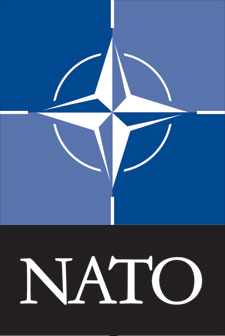Supranationalism and the EU

The polymath philosopher, activist and Nobel laureate Bertrand Russell was a radical left iconoclast who made major contributions to mathematical logic and nearly every other discipline he touched. Many libertarians admire him, but one major disagreement stands out: In his later years he advocated world government in order to prevent the use of nuclear weapons and put a final end to war itself.
Forty-six years after Russell’s death, global superstates have grown in stature. The newcomer is the European Union (EU), which gradually emerged as a political and monetary union from its 1951 roots as the European Coal and Steel Community. The idea was to prevent war between Germany and France in the aftermath of WWII under the aegis of “supranationalism.”
As Einstein noted, “Nationalism is an infantile disease. It is the measles of mankind,” and “I am against any nationalism, even in the guise of mere patriotism. Privileges based on position and property have always seemed to me unjust and pernicious, as did any exaggerated personality cult.”
Libertarianism is incompatible with nationalism. But how should we think about supranationalism?
Will ceding national sovereignty to a higher political power reduce or compound the damage traditionally wrought by states? Is supranationalism a stepping stone to lasting peace and the ultimate dissolution of states?
Or might the concentration of power under Pax Europeana lend only a false sense of security, only to be overturned when a violent demagogue takes power in Brussels?
National politicians have been wise not to cede military sovereignty, but the option will always be on the table. But now several countries want to leave the EU — it’s a mess.
My Own Experience at EU Institutions

I recently visited the ruling institutions of the nascent European superstate, the European Union (EU). These include the European Court of Justice (their Supreme Court) located ironically in uber-corrupt Luxembourg, plus NATO and the European Commission in Brussels. I was briefed by senior officials and bureaucrats.
I listened with an open mind to all the cases presented by EU/US officials, but I remain unconvinced of the wisdom of many EU policies.
The EU seems like a measure to centralize control in order to make it easier for business to co-opt European politicians who are now located in one place — rather than deal with thousands of politicians in each nation’s capital city. Akin to stationing all US lobbyists in Washington D.C., rather that at every state capital.
The structure of the European Commission and its affiliated institutions is sufficiently labyrinthine to deter democratic accountability. Certainly there are good reasons to coordinate national policy in Europe, like environmental protection, reduced barriers to trade and investment, and law enforcement.

But these benefits may not outweigh the costs of centralization of power, where it is at risk of corruption. Fortunately, military sovereignty has not been ceded yet (recall the Freedom Fries incident when France and others refused to invade Iraq with NATO).
NATO, by the way, exists as a counterweight to Russia. And Russia justifies their “aggression” as a counterweight to NATO. Round and round we go.
One recent development threatens to rip apart the EU: “the migrant crisis.” These people are “refugees,” but the EU doesn’t call them that because it would grant the refugees special legal protections, such as being treated with the dignity deserved by all human beings.
The refugee crisis resulted from Western activities in the MENA region. The political instability which resulted from military excursions over the last decade gave way to the conditions that have caused millions to leave their homes for Europe. The public’s xenophobic response and politicians’ failure to integrate the migrants has been disgraceful.
The idea of the EU itself is a noble aspiration. Like many, I support the elimination of borders and use of a common currency as welcome moves away from the nationalism that ravaged the continent for a couple thousand years. But these are mere concessions for what I suspect is the actual purpose of the monetary union.
The Troika Is Robbing Peripheral Europe
The Troika is composed of the European Central Bank (ECB) in Frankfurt, the European Commission (EC) in Brussels, and the International Monetary Fund (IMF) in Washington D.C. These entities owe allegiance more to investment banks than nations. The creditor of ailing European states, the Troika is technocratic and has the upper hand intellectually and financially.

Member states being unable to control their own currency has led to serious problems that can, according to the EU, only be solved by direct transfers of money from states which benefit from strong currency (Germany and Northern Europe) to those which are hurt by such a monetary regime (Ireland, Southern Europe, Eastern Europe).
This is like the US model, where tax revenues from New York and California help fund Alabama and New Mexico. It is the “United States of Europe,” a fiscal federation model. Regardless of whether this is a desirable structure vis-a-vis sovereignty and democratic accountability, it is unlikely to be enacted due to continuing nationalism, e.g., the Brexit (Britain) or Grexit (Greece).
Odious government debt should either be defaulted upon, or states must leave the monetary union to devalue their currencies. Otherwise, it will strangle economic wellbeing for decades to come. By endorsing Burns and Kotlikoff’s The Coming Generational Storm, Fed Chair Janet Yellen herself acknowledged the US will ultimately need to inflate away or default upon their debt, which sits well over 100% debt to GDP ratio.
The current austerity regime has not, and will not, work (it was likely not intended to work) due to the following economic dynamic: Austerity involves raising taxes and lowering state spending. That curtails GDP growth. This is uncontroversial in Keynesian economics, the dominant albeit imperfect model. Tax revenues are always a percentage of GDP. Shrinking GDP reduces tax revenue. This reduces the state’s ability to meet interest payments on floating interest rate debt.
This floating rate goes higher and higher as uncertainty mounts — a positive feedback loop. It is a self-fulfilling prophesy. The Troika (IMF, ECB, EC) offer short term solutions (loans) in exchange for increasing austerity measures. This exacerbates the original problem. Financial assets, real estate, and state-owned assets trade at a discount and banks and investors benefit from fire-sale prices while the public, who had little role in the cause of the debt crisis, are the ones who suffer.
The end result is a wealth transfer to financial institutions and wealthy investors followed by impoverishment of the public. This is not a recipe for a unified Europe. It is robbery. The same type that has been perpetrated by the IMF for decades in Southeast Asia, Africa, and Latin America.
This is not just my own view, but one shared by Nobel prize-winning economist Joseph Stiglitz, the former chief economist at the World Bank. He described the above mechanism of neoliberal expropriation in his 2002 book, Globalization and Its Discontents.

Unifying Europe requires repudiating the financial piracy perpetrated by the same banks that launder drug cartel money (e.g., HSBC), rig the most important interest rate in the world (LIBOR), and express gratitude for government bailouts by paying themselves eight-figure bonuses in the midst of a crisis that they caused.
The Icelandic example could serve as a model, which included jail time for criminal bankers and nationalization of the banking system (not compatible with libertarianism, but neither is central banking). Iceland has recovered nicely while the rest of Europe remains mired in a deflationary debt trap.
The EU may have been founded with noble intent. But it has been co-opted by the usual suspects (bankers, politicians) to serve as a sophisticated extortion scheme and mechanism to render a traditionally revolutionary and left-leaning continent “more business friendly” by weakening labor.
I submit that member states should leave the Eurozone, default upon or devalue their debt simultaneously (most of the debt is already owned by the ECB), and the slate will be cleared. Big business can still transact in Euros, or the IMF’s Special Drawing Rights to save on forex costs (that is, until they are replaced with worker cooperatives, God/FSM/Xenu willing).
Until the debt is cleared, it will hang over the head Europe like guillotine blade. It is time that the people of Europe replace their heads with those responsible for, and profiting from, this protracted and artificial crisis.







